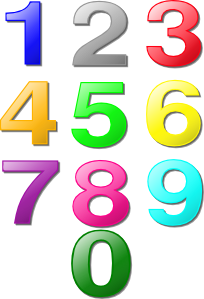Ten St. Patrick’s Day Items and How to Lenite and Eclipse Them Posted by róislín on Mar 19, 2014 in Irish Language
(le Róislín)
Before we completely leave Lá Fhéile Pádraig (aka Lá ‘le Pádraig) behind us and turn to “céad lá an Earraigh” (20 mí an Mhárta 2014), let’s practice lenition and eclipsis of some Irish nouns pertaining to “an Naomh é féin” and the celebrations of the day.
The concepts of lenition and eclipsis have been discussed many times previously in this blog. You can find blog listings for these topics on the website by searching in the search box (nasc thíos). I don’t think you can search that way on the blog’s Facebook site (nasc thíos), but I’m not positive. At any rate, for anyone completely new to the Irish language, here are brief definitions of these processes:
lenition (called “séimhiú” [SHAY-voo] in Irish) is the process of softening the initial consonant of a word. In spelling, it means you add an “h” after the first letter, so “bó” becomes “bhó” and “dlaoi” becomes “dhlaoi.” In pronunciation the sound is “softened,” as the term “lenition” suggests (since it is related to “lenient” in English). There are many situations in which lenition occurs in Irish but in today’s blog we’ll mostly be concerned with the numbers from two through six causing lenition to the noun that follows. You may have seen examples like “dhá bhó” (two cows), “trí bhó” (three cows) and so on up to “sé bhó” (six cows). Another set of examples would be “ceithre phréachán” and “cúig phréachán“).
eclipsis (called “urú” [ur-oo] in Irish) is the process of covering over the sound of the initial letter of a word by putting a new letter in front of it. Pretty different from “Béarla,” eh? The word “urú” is also used in phrases like “urú na gréine” and “urú na gealaí” but that’s more a matter for “réalteolaithe,” not for “tosaitheoirí ó lucht foghlamtha na Gaeilge.” Typical examples of the eclipsis of Irish words look like this: “seacht mbó” ([shakht moh] seven cows, the “b” is now silent) and ‘deich mbó” ([djeh moh] ten cows). Another set of examples would be “ocht bpréachán” [okht BRAY-khawn] and “naoi bpréachán” [nee BRAY-khawn]).
But enough of counting cows (“ba“) and crows (“préacháin“). Let’s do some St. Patrick’s Day items. Oh, and one more point — the number “one” doesn’t cause either lenition or eclipsis because it comes after the noun, as in the example (“bachall amháin“). For the remainder, see if you can fill in the two missing letters for each noun. Each one is actually a “dúshlán dúbailte” ([doo-hlawn DOO-bil-tchuh] because you have to figure out what the incomplete word is, and then lenite or eclipse it. Answers and translations will be given below:
1. bachall amháin
2. dhá ___ ___ aráid
3. trí ___ ___ uilleog na seamróige
4. ceithre ___ ___ ionta Guinness
5. cúig ___ ___ eamróg mhóra
6. sé ___ ___ lincín fuisce
And now starting with eclipsis:
7. seacht ___ ___ loine beorach
8. ocht ___ ___ upán caife gaelach
9. naoi ribe fhionnadh an mhadra a “bhain greim as na hóltóirí” — that one’s a giveaway, since the letter “r” as in “ribe” is never eclipsed or lenited. An dtuigeann tú an frása? Muna dtuigeann, tá an t-aistriúchán thíos.
10. deich ___ ___ árta Lá Fhéile Pádraig le clúdaigh uaine
Bhuel, sin spórt is spraoi agus cleachtadh dian le huimhreacha agus le hainmfhocail. What more could you ask more, post-“LFP“? SGF – Róislín
P.S. “LFP”? Féach an nóta thíos.
Na Freagraí, with lenition ar dtús. Remember, nouns stay singular after numbers in Irish, so none of these entries are actually plural in terms of word-endings.
1. bachall amháin, one crozier (crosier)
2. dhá pharáid, two parades
3. trí dhuilleog na seamróige, the three leaves of the shamrock
4. ceithre phionta Guinness, four pints of Guinness
5. cúig sheamróg mhóra, five big shamrocks (note that the adjective “mór” is also lenited and does have the plural ending)
6. sé ghlincín fuisce, six shots of whiskey
And now starting with eclipsis:
7. seacht ngloine beorach, seven glasses of beer
8. ocht gcupán caife gaelach, eight cups of Irish coffee
9. naoi ribe fhionnadh an mhadra a “bhain greim as na hóltóirí” — nine hairs of the dog that bit the drinkers. Presumably there were “naonúr óltóirí” (nine drinkers), since, according to tradition, each drinker should get a (i.e. just one) “hair of the dog that bit him.” Whether the “naoi ribe” came from “naoi madra éagsúla” or from “madra amháin” is up to your imagination. But probably the pain of the “póit” (hangover) isn’t imaginary, especially if your “Pota Pádraig” was served in some sort of “Coire Ansic” (Undry or Endless Cauldron), like that of the Dagda (one of the Celtic gods). At any rate, no séimhiú or urú for words that start with the letter “r.”
10. deich gcárta Lá Fhéile Pádraig le clúdaigh uaine, ten St. Patrick’s Day cards with green envelopes
And the bonus for making it down to “bun an bhlag seo“: deich gcreathán bainne seamróige (de chuid McDonald’s ag an am seo den bhliain), ten “shamrock” shakes (the McDonald’s special). Or maybe that should be “deich gcreathán bainne sheamrógdhathacha” (ten shamrock-colored milkshakes), since they’re not actually made of shamrocks, fad m’eolais. Barúil agatsa? An maith leat creatháin bhainne sheamrógdhathacha? Is maith? Ní maith? Inis dúinn, mura mhiste leat!
Nascanna:
https://blogs.transparent.com/irish/
https://www.facebook.com/learn.irish
Nóta: LFP, Lá Fhéile Pádraig. May as well add that “giorrúchán” to the mix

Build vocabulary, practice pronunciation, and more with Transparent Language Online. Available anytime, anywhere, on any device.





Leave a comment: